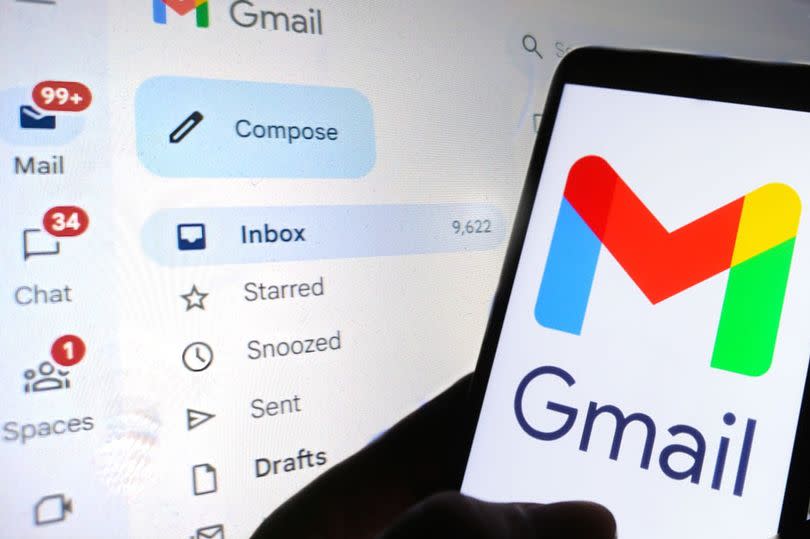'Do not respond' warning to anyone using Gmail and Yahoo users told 'computers at risk'

Scammers are attempting to dupe UK users with messages warning that their PCs are at risk. Action Fraud has issued a new alert after thousands of people reported being targeted by these fraudulent emails.
The messages, which have been inundating inboxes since last month, imply that crucial anti-virus software has expired and immediate action is required to ensure personal data remains secure. To make things seem even more legitimate, the messages suggest they have been dispatched from reputable brand McAfee, one of the world's leading security firms.
"Watch out for these FAKE McAfee emails," warned Action Fraud in a post on X (Formerly Twitter ).
READ MORE: Bailiffs demand £1k from couple in solar panel row
Sign up to the BirminghamLive newsletter here to get the latest updates on the biggest and breaking stories.
If you receive anything from McAfee suggesting you need to act to keep your subscription active, it's crucial to be highly vigilant before clicking any links, reports the Mirror. "Action Fraud has received 4,531 reports since 1st April 2024 relating to fake emails purporting to be from McAfee," added Action Fraud.
"The emails state that the recipient's computer "could be at risk" from "virus and other malware" if they don't renew their anti-virus subscription. The links in the emails lead to phishing websites that are designed to steal your personal and financial information."
Despite most providers such as Gmail and Yahoo having excellent spam detection, some messages can evade these filters, making it essential to stay alert. McAfee has dedicated an entire web page to the issue of scams, warning: "Cybercriminals target individuals through fake emails that look as if they've been sent from an established and legitimate company, McAfee explained."
"Their goal is to get you to reveal your private and sensitive information like your credit card details, date of birth and more. You can forward suspicious emails to scam@mcafee.com."
Action Fraud also offers straightforward advice for staying safe: "If you have doubts about a message, contact the organisation directly," they advised.
"Don't use numbers or addresses in the message - use the details from their official website. Your bank (or any other official source) will never ask you to supply personal information via email."
So it's vital to keep a vigilant eye on your inbox and exercise caution before responding to or believing the contents of any message.

 Yahoo News
Yahoo News 
